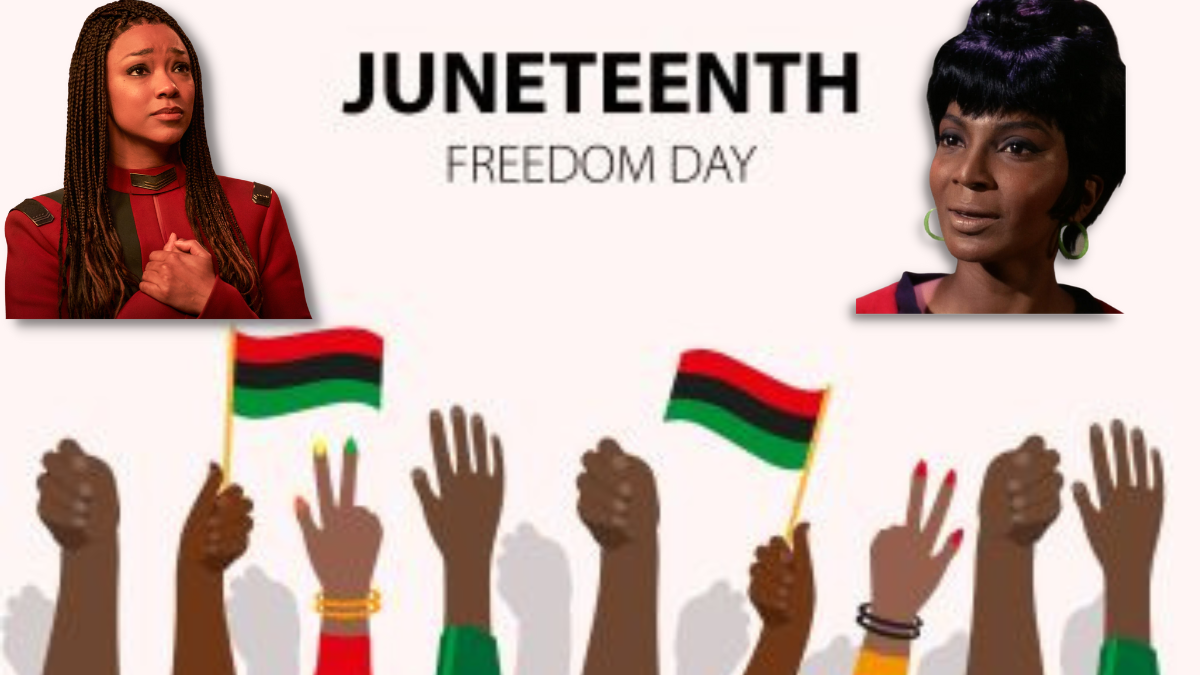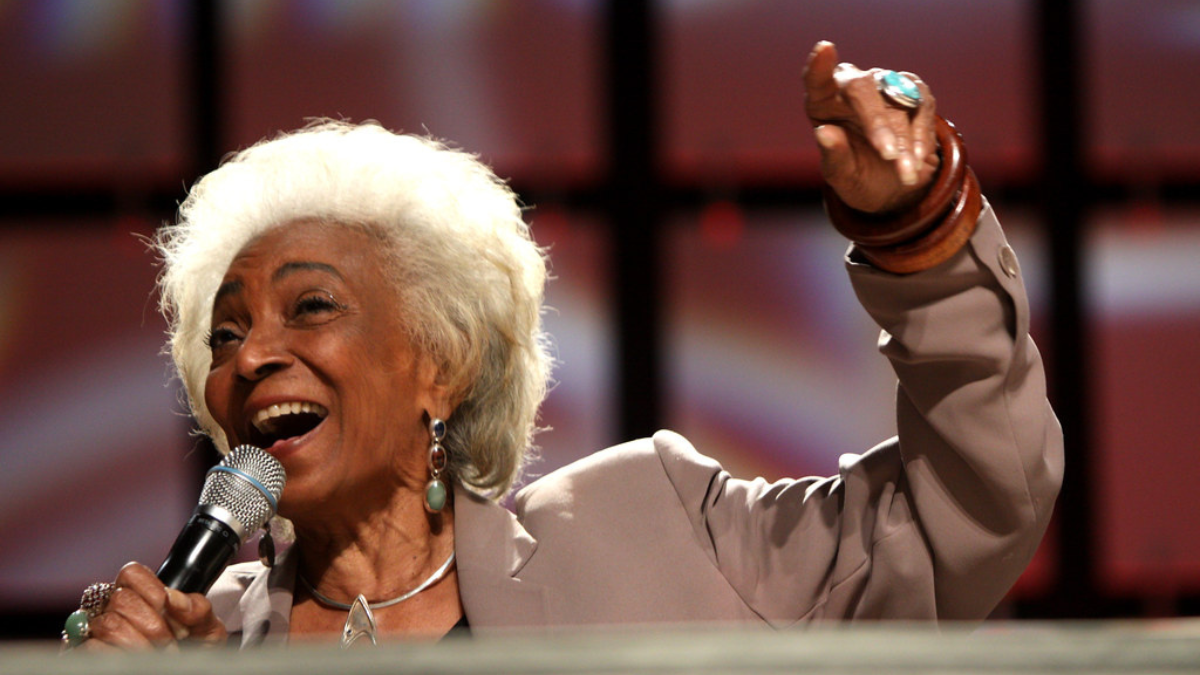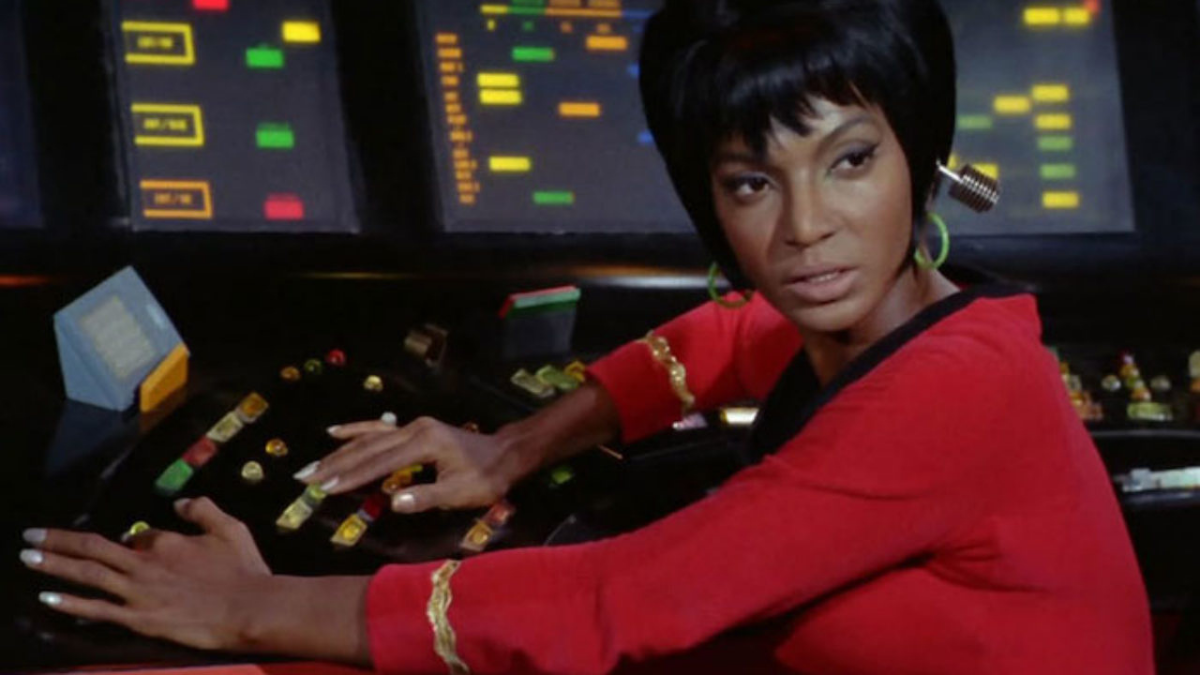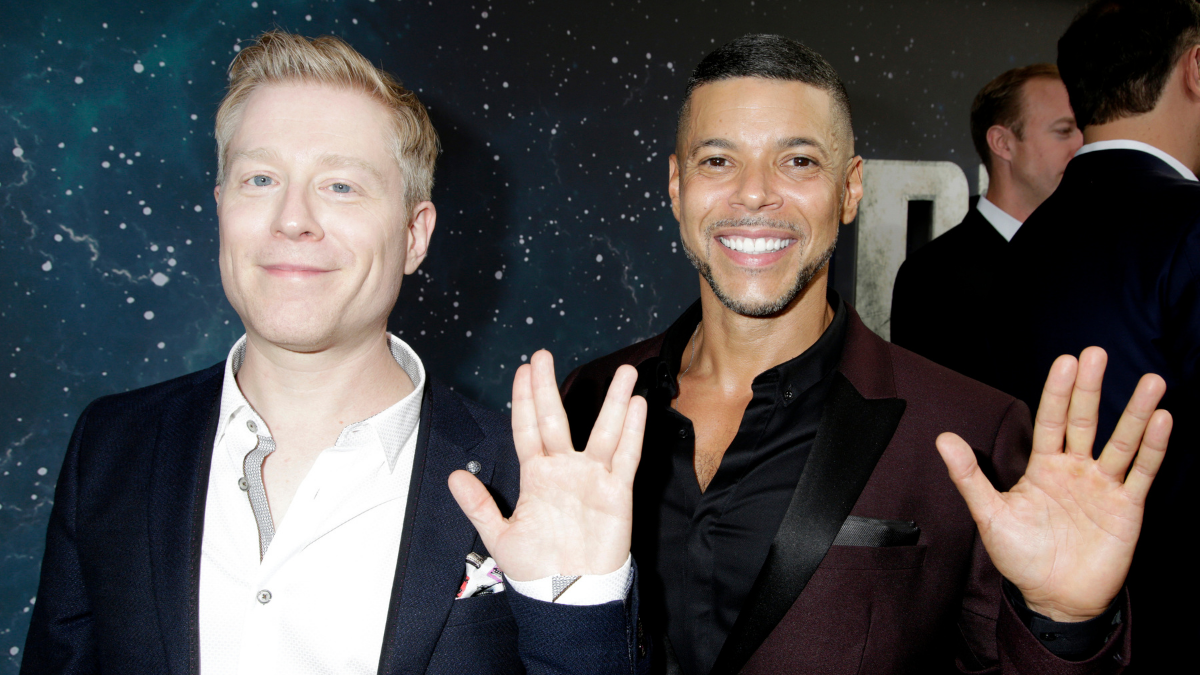JUNETEENTH: 'Star Trek' Helped Blaze a Trail For Civil Rights That Endures To This Day

Juneteenth, with Sonequa Martin-Green as Burnham and Nichelle Nichols as Uhura. Images: Paramount / Association of Corporate Citizen Professionals.
JUNE 19, 2023 - Today is Juneteenth, a federal holiday in the United States since 2021 which commemorates the moment 158 years ago when slaves in Texas learned that they were finally free. Although people of color still had a long way to go, it was an important moment in civil rights history. 100 years later, Star Trek began doing its part for the movement. We at DSTN considered taking the holiday off but decided it was more appropriate to celebrate it. in the following article, Chris Post reflects on Star Trek’s role in the Civil Rights Movement.
In the tumultuous era of the 1960s, when the Civil Rights Movement was challenging the oppressive status quo in America, an unexpected television show emerged, providing a beacon of hope and inspiration. Star Trek, created by Gene Roddenberry, not only entertained audiences with its futuristic adventures but also fearlessly tackled social and racial issues, becoming a symbol of progress and inclusivity. Through its groundbreaking storytelling and diverse cast, Star Trek made significant contributions to the civil rights movement, both reflecting the struggles of the time and helping to advance the cause.
A Visionary Future
Star Trek envisioned a future where humanity had moved beyond its present-day limitations, embracing unity and equality. Set in the 23rd century, the series portrayed a multicultural and multiethnic crew aboard the starship USS Enterprise. This diverse cast reflected the strength of America's diversity and its potential for progress. By presenting an optimistic vision of the future, Star Trek encouraged viewers to consider a world free from racial discrimination and prejudice, emphasizing the importance of inclusion and acceptance.
Breaking Barriers
One of the most significant contributions of Star Trek to the civil rights movement was the groundbreaking portrayal of African-American actor Nichelle Nichols as Lieutenant Uhura, the communications officer of the USS Enterprise. Nichols' character was not only an integral part of the crew but also depicted as a competent and respected officer—a departure from the limited and often stereotypical roles that minority actors were usually assigned at the time.
In an iconic moment in television history, Nichols was persuaded to remain on the show by none other than Dr. Martin Luther King Jr. himself. Recognizing the importance of her role, he told her, "You are not only representing African Americans, you are representing the future." This conversation between two influential figures demonstrated the profound impact that Star Trek had on society, empowering marginalized communities and inspiring them to believe in their own potential.
Confronting Prejudice through Allegory
Star Trek excelled in using science fiction and allegory to tackle pressing social issues, including racial discrimination. Through clever storytelling, the show addressed these concerns without directly pointing fingers, creating a safe space for discussion and introspection. Episodes like "Let That Be Your Last Battlefield" confronted viewers with the absurdity of racism by featuring aliens with half-black and half-white faces who were locked in a bitter conflict solely based on the color of their skin. Such episodes provided thought-provoking commentary on race relations, encouraging viewers to reflect on the destructive nature of prejudice.
Blazing Trails
The impact of Star Trek extended beyond the confines of television screens. By depicting an African-American woman as a respected officer and an Asian-American helmsman in the character of Hikaru Sulu, played by George Takei, the series shattered stereotypes and paved the way for future generations of actors from diverse backgrounds. These characters demonstrated that people of color could excel in positions of authority, challenging societal biases and contributing to a more inclusive America.
Inspiring a Movement
The influence of Star Trek on the civil rights movement extended to its dedicated fanbase. Trekkies found solace and inspiration in the show's message of hope and equality. Through fan clubs and conventions, Star Trek brought together a diverse community of individuals who believed in the vision the show presented. These fans carried the ideals of the show into their daily lives, advocating for social change and equal rights, and even pursuing careers in science and technology as a result of the series' influence.
A Legacy That Endures
More than half a century after its inception, Star Trek continues to inspire generations of viewers and influence popular culture. The franchise has spawned numerous spin-offs and movies, all carrying on its commitment to inclusivity and social commentary. From the diverse crew of Star Trek: Discovery to the powerful character of Michael Burnham, played by Sonequa Martin-Green, the franchise remains a torchbearer for the civil rights movement, reminding us that progress is not a destination but an ongoing journey.
In retrospect, Star Trek stands as a testament to the power of storytelling in driving societal change. Through its diverse cast, visionary storytelling, and unwavering commitment to equality, the show not only reflected the struggles of the civil rights movement but also helped propel it forward. As we look back on this iconic series, we are reminded that we must continue to boldly go where no one has gone before, championing the values of inclusivity, justice, and equality for all.
Chris Post is a life-long fan of Star Trek who has been working in journalism for nearly 25 years.





